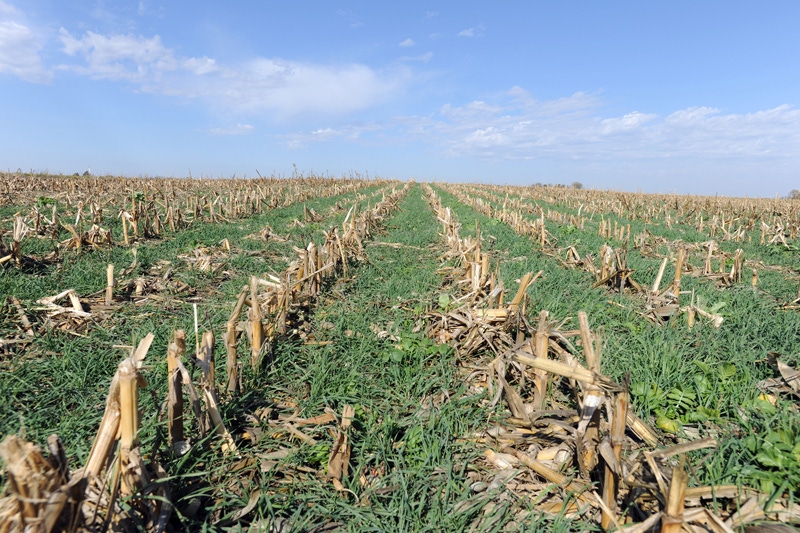

Rick Juchems, Plainfield, Iowa. Photo: Susan Winsor
Rick Juchems, Plainfield, Iowa. Photo: Susan WinsorRick Juchems, Plainfield, Iowa, is surprised that cereal-rye cover crops did not reduce his corn or soybean yields. He and 11 other Iowa farmers participated in a five-year trial to determine whether rye causes yield hits in the cash crops that follow it. It doesn’t.
Juchems' corn yields remained steady, and he saw a slight improvement in soybean yields on the cover crop acres last year as well as in 2011.
"When I first started the (five year) trial, I thought the crop following the cereal rye cover crop would suffer because of the competition for water and nutrients," says the Butler County farmer. "But in some cases, I’ve seen stronger yields and better soil quality."
Juchems recommends the Midwest Cover Crop Council publication as a resource.
Although many soil-quality improvements take years to occur, these results confirm that cereal rye (or winter rye) does not reduce corn or soybean yields, says Sarah Carlson, PFI Midwest cover crops research coordinator. Because it takes time to learn how to establish a good cereal rye stand, the study’s results may be overlay conservative, she adds. Once farmers become skilled at seeding this type of small grain, its benefits could well be larger than shown here, Carlson says.
 You might also like:
You might also like:
Q&A: Aerial photos reveal problems in corn, soybean fields
About the Author(s)
You May Also Like






